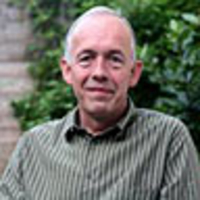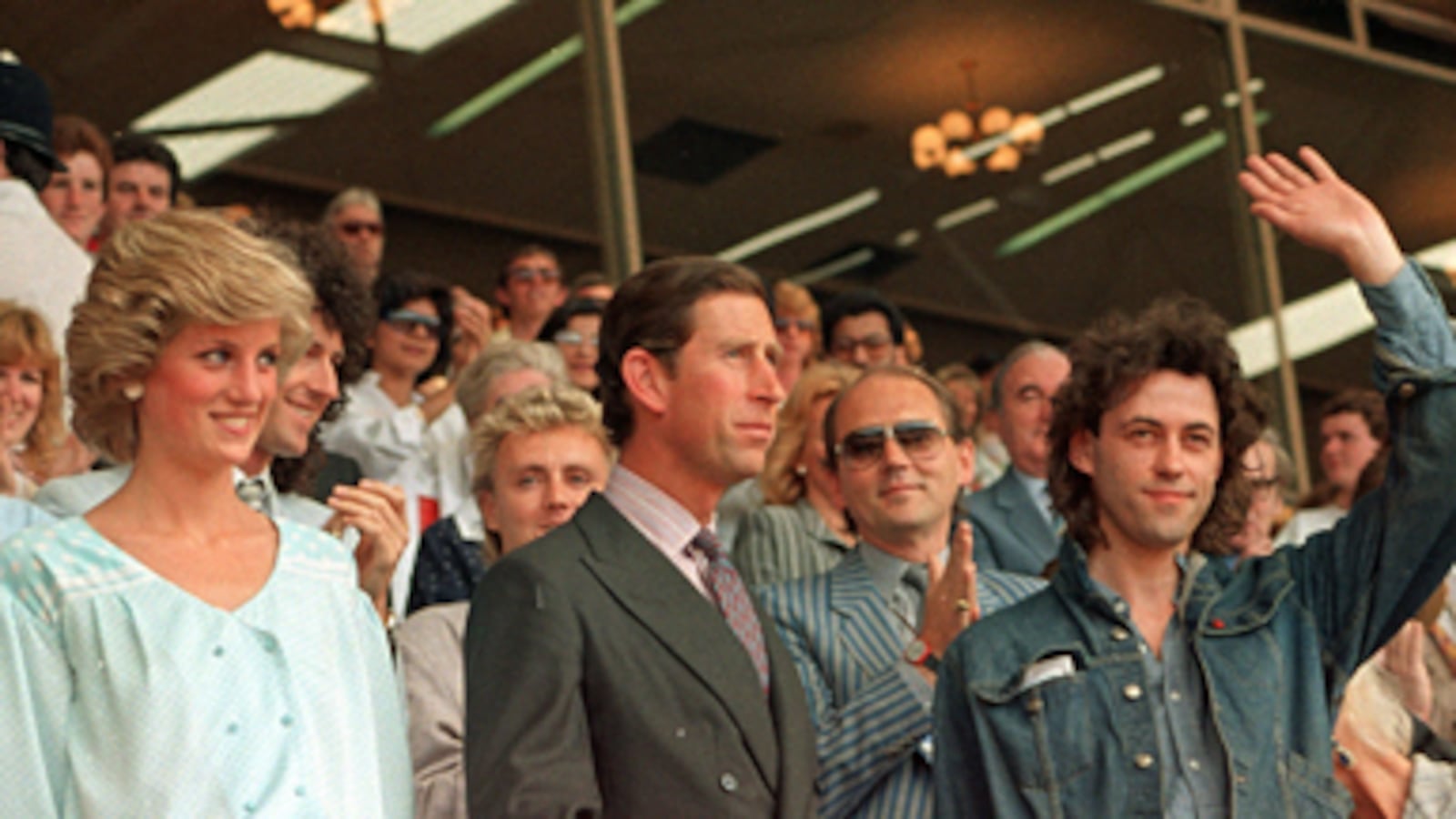It’s about time the BBC got around to apologizing.
Last spring, the network aired a radio documentary featuring allegations—by no less a figure than the Africa editor of the BBC World Service—that in the 1980s, funds from the humanitarian aid effort known as Band Aid had been diverted to Eritrean “rebels.” The idea that money meant to help people had been diverted to fund murder and mayhem infuriated Band Aid’s founder, Bob Geldof, who claimed the documentary had done “appalling” damage to his cause.

For the first time in its history, the BBC, acknowledging that the allegations had also seeped into other areas of its coverage, this week apologized simultaneously across its three platforms: TV, radio and online. The BBC “wishes to apologize unreservedly to the Band Aid Trust for the misleading and unfair impression which was created,” it announced, conceding that the report “should not have been broadcast.”
This recognition of error was particularly sad for generations of BBC staff who had worked with the combustible but mercurial Irish singer since the 1985 Live Aid concert. As Geldof always made clear, it was Michael Buerk’s seminal BBC News reports from Ethiopia that had inspired him to found Band Aid. In March this year, however, a volcanic Geldof, speaking from Nairobi condemned the documentary as soon as it was broadcast, saying it had not “a shred of evidence.” He said that he would sue the Ethiopian government if any of the BBC report was true. (The Ethiopian “rebels” of the 1980s overthrew the Derg regime in 1991 and now form the government in Addis Ababa.)
Former BBC chairman and current Band Aid Trust board member Michael Grade reacted with cold fury to the apology, which took the corporation’s Editorial Complaints Unit (ECU) eight months to produce. Grade described the documentary as an “outrageous” and “pretty sick” piece of work, that had used Geldof’s Band Aid to “sex up” allegations for which there was no proof.
It is clear that the BBC team which made the offending radio documentary failed to meet with or speak to Geldof before broadcast.
If cowardice were a factor in the BBC documentary team’s failure to put their allegations to Geldof, it would be understandable, if not excusable. “Force of nature” is a frequently misused term, but it applies to Geldof. I witnessed and filmed it at the 1985 Live Aid concert. As a BBC TV news producer, my task had been to live in Geldof’s pocket for a month before the show, making news reports about his ambitious and extraordinary bid to stage “The Greatest Live Concert of All Time.” Skeptics anticipated the greatest flop of all time, but come July 13, 1985, with 100,000, including Prince Charles & Princess Diana, crammed into Wembley Stadium and a TV audience of billions watching, Geldof had assembled a stellar line-up for the concerts in London and Philadelphia. Among the acts on stage: David Bowie, the Who, U2, Madonna, and Queen. In London, ex-Beatle Paul McCartney had agreed to play live for the first time since John Lennon’s murder in New York in 1980.
My BBC team was the only media given an “access all areas” pass. With a brief from BBC TV News Chief Ron Neil not to let Geldof out of my sight, my job was to film his every move.
As the concert hit its stride, I nipped into the artists’ backstage area in mid-afternoon to speak to Live Aid’s inspiration. Geldof surprised me when he asked me how I thought it was going. “It’s OK, but it’s a bit like a Radio 1 road show,” I replied. (For many years, the BBC’s pop station Radio 1 has run live summer concerts known to generations of listeners as “road shows.”) “What do you mean by that?!” barked Bob. “Well the music is fine, but no one is mentioning Ethiopia or the famine,” I replied.
“Fokkin’ hell!” roared Geldof as he shot out of the artists’ compound, leaving myself and my cameraman, Ian Pritchard, dizzy in his wake. Comically, however, Bob had no idea where he was going. “Where are you fokkers broadcasting from?” he bellowed. Geldof wanted to find the BBC’s live point and strangle some of my colleagues, and he required me to be his accomplice!
“No idea, Bob!” I replied honestly but inadequately, feeling momentarily disoriented myself.
It is difficult to think of a lower point in the BBC World Service's history.
“Might be somewhere up there,” I added, pointing to the “Gods” above the stadium. I had rarely been so nervous as we all crammed into one of the old Wembley’s tiny lifts. As it creaked upward, painfully slowly, Pritchard filmed a seething Geldof. I was just praying that we had picked the correct lift! Geldof appeared to be near exhaustion but was glowing with indignation as he feared the fate of the whole Live Aid project was in the balance. Through the lift walls we could hear the sound of Freddie Mercury and Queen’s show-stopping performance, but no one was mentioning the famine—and the sole purpose of Live Aid was to raise money. The U.S. concert in Philadelphia was just beginning, but the London concert seemed to going awry.
Geldof burst out of the lift. “What did you bring him up here for?” asked a startled BBC colleague from Outside Broadcasts. A live appearance from Geldof was decidedly not on the BBC running order. “Try stopping him!” I retorted as Geldof plonked himself, unannounced, on the BBC set. “I think Bob has got something important he needs to say.” Cue Geldof’s unscripted, iconic, table-thumping moment: “People are dying NOW. Give me your money NOW.”
When the presenter started to read the address for donations, Geldof cut in, "Fuck the address, just give the phone, here's the number..."
“Thanks mate,” Geldof muttered as we briefly hugged each other as he swept off the BBC set. “Hope that’s done it!”
It had. Live Aid was no longer a Radio1 road show. The rate of giving reportedly soared to £300 ($486) per second in the wake of his outburst.
By the time it was all over, the Live Aid concerts would raise £150 million.
Before the end of 1985, I worked with Bob again on a documentary called Do They Know It's Christmas? With Geldof in Africa. A BBC news crew had followed Band Aid’s founder through six sub-Saharan countries—Sudan, Uganda, Eritrea, Somalia, Niger, and Ethiopia—as Geldof allocated Live Aid funds to relieve starvation, to fund water and sanitation projects, to pay for health improvements, food security, and education. In all these countries, Band Aid continues to work with established charities such as Oxfam and Save the Children, as well as UNICEF and the UNHCR.
Michael Grade, then controller of BBC TV, cleared a pre-Christmas slot at Ron Neil’s request to air the film as a BBC TV News special. Reporter, Chris Morris, read the script and I got Geldof himself to voice key sequences.
In 1985 Geldof explained where and how the Live Aid money would be spent: saving lives across Africa. In 2010 the BBC failed to get a response from Geldof himself to the damaging claims it has now apologized for making. It is difficult to think of a lower point in the BBC World Service’s history, or a more vivid betrayal of a very proud legacy.
Martyn Gregory is an award-winning free-lance investigative documentary producer and author. He worked for the BBC African Service from 1981 to 1982. He subsequently worked for BBC TV News from 1983 to 1989 and produced its 1985 coverage of Live Aid. Gregory’s earlier dispatches for The Daily Beast can be found here.






